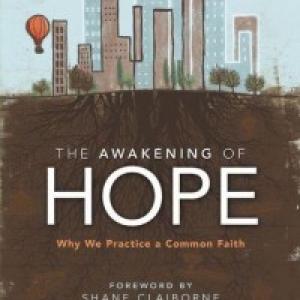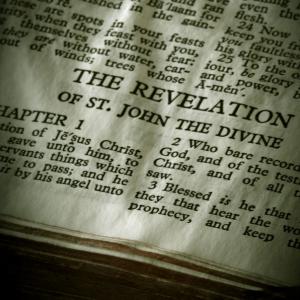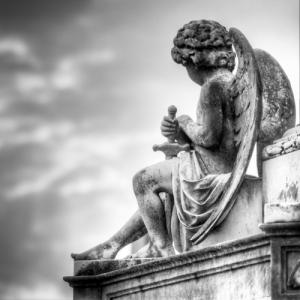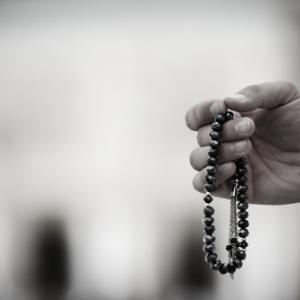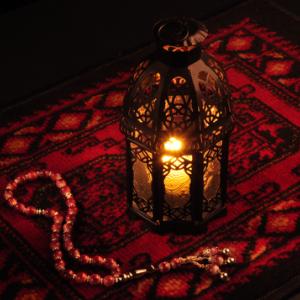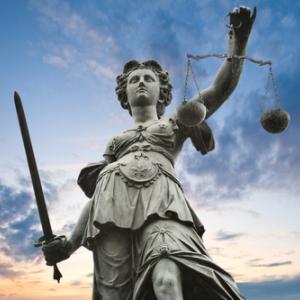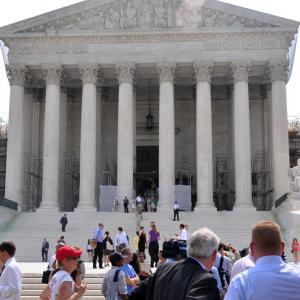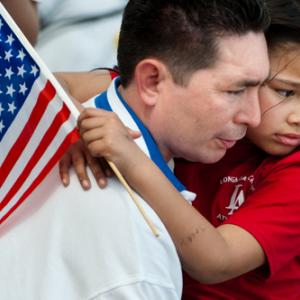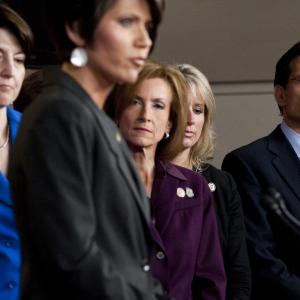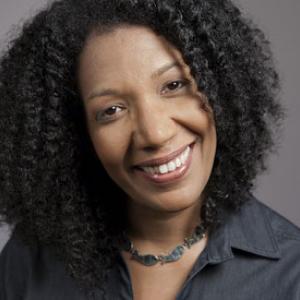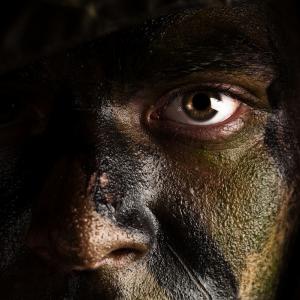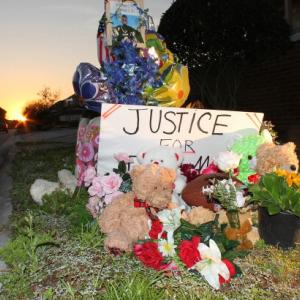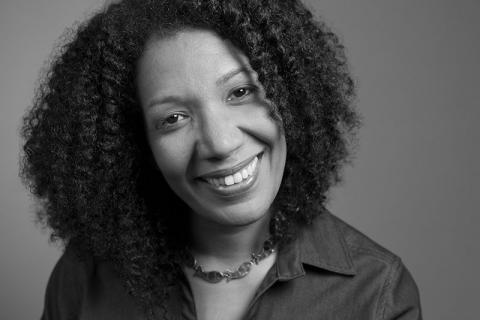
Lisa Sharon Harper, a former Sojourners columnist, is the founder and president of Freedom Road and author of Fortune and The Very Good Gospel. You can follow her work at lisasharonharper.com.
Posts By This Author
A Call to Transform Politics
Someone asked me recently what I thought of something “as a member of the Christian Left.” My insides tightened and screeched into a ball. It was as if Freddy Krueger had run his sharpened fingernails across the black board in history class. Christian Left? Left of what? When did I sign that membership card?
Maybe it’s the title of my last book, Left, Right and Christ: Evangelical Faith in Politics, which was co-written with a Tea-Partier who is also an evangelical Christian. The book does frame me as the one on the left, but if you read my chapters you’ll see that is not my mind or my heart.
In times like these, when politicians are sweating to sway voters to their side, or frame their opponents as the polar opposite—the enemy—it is tempting to begin to define ourselves and each other through the frame of politics. We place each other in convenient little political boxes—boxes not made by scripture or the church, but by politicians and the media.
Book Review — The Awakening of Hope: Why We Practice a Common Faith
Jonathan Wilson-Hartgrove is a modern-day sage. A leader in the New Monastic movement, Hartgrove offers New Monastics and the church at-large profound lessons revealed through the practices of catechism — the spiritual disciplines of Christian faith.
Tempted by the powers of isolation, consumerism, pride, and violence this generation is drawn to the calls to community and simple living for reasons it hardly knows. Wilson-Hartgrove explains the “why."
Through the stories of well-established intentional Christian communities, Wilson-Hartgrove offers windows into the catechisms of the Christian faith. Communion and the Eucharist, fasting, integrity, community, non-violence, and public witness each serve as windows into much deeper philosophical and theological discussions.
Ramadan Karim: Revelation
It was the summer of 1994 and about 10 friends and I sat huddled around Bibles in my friend’s living room. It was a “scripture party.” The lights were dim and the air was full of anticipation and mystery. We did not know what God might reveal as we opened the book of Revelation and read it out loud, in community, in one night.
This bears resemblance to the way the early church would have read the scripture. They were an oral culture, not a written one. The Hebrew Bible was written on scrolls that were read aloud to congregations. Most of the New Testament was written as letters to the worshiping bodies of whole cities (i.e. the saints in Ephesus, the church in Philippi, the body in Corinth, etc.). When received, the letters would be read out loud to the whole church community and received as God’s instruction revealed through the apostles for the edification of their communities.
Imagine being one of the very first followers of the Jesus “Way” (Acts 9:2).
Imagine being a persecuted religious group. You have to use code — the sign of the ichthys — to identify yourself to other believers for fear of religious persecution. Only when you are gathered together in secret can you speak openly about your faith. Only then can you be fully known and appreciated for the whole image of God that lives inside of you.
Imagine huddling in a secret meeting place and reading the Apostle John’s Revelation of Jesus Christ for your nascent faith community in Ephesus or Smyrna, or Pergamum, or Thyatira, or Sardis, or Philadelphia, or Laodicea (Revelation 2-3). Imagine living in Ephesus and reading Paul’s prayer for your church to understand its hope and inheritance (Ephesians 1:17-2:22).
And imagine being rich in the early church and hearing James’ letter warning: “Listen! The wages of the laborers who mowed your field, which you kept back by fraud, cry out, and the cries of the harvesters have reached the ears of the Lord of hosts.”
Imagine hearing it all for the first time. It all feels so real. The call to holiness feels so urgent because God feels so present.
Ramadan Karim: Living Like Angels
I’m on day 14 of my Ramadan fast — almost the halfway point. My schedule has been so scattershot with travel that I haven’t been able to make it to a mosque yet. Nonetheless, lightheadedness brought on by lack of water and sleep has become my new normal.
I asked Daisy Khan, Imam Feisal’s wife and the Executive Director of the American Society of Muslim Advancement: “What about sleep? How do people do it?” She explained, during Ramadan we live like angels. Angels don’t need sleep. They don’t need food or water.
“But how do they do it, physically?” I pressed.
“Spiritual energy,” Daisy said.
Ramadan Karim: The Poor Will Be Fed
After two days of deep and unwavering pangs of hunger and thirst that had to wait for sundown to be filled, I had an epiphany: In the same way that I waited eagerly for the breaking of the Ramadan fast each night — counting it as something to celebrate — on the day Jesus comes again, we will celebrate. On that day there will be no injustice anymore. Imagine it! There will be no hunger anymore! There will be no one who is thirsty anymore! All will have their fill! All will taste the sweetness of life! All will be free of oppression! All will be able to laugh and play, and no one will be lonely any more.
Then it struck me: Ramadan offers an emphatic example of what is to come. Just as the community of creation suffers and groans waiting for all the relationships broken at the Fall to be made right again (Romans 8:18-23), so the communities that practice Ramadan suffer and grow together each day, waiting for their very bodies to be made right again each night through the intake of food and water.
Ramadan Karim: Sojo Staffer Joins Imam for Islam's Monthlong Fast
EDITOR'S NOTE: Ramadan's first day of fasting began today at dawn. This year, Sojourners' Director of Mobilizing, Lisa Sharon Harper, has chosen to keep the fast during the Muslim holy month alongside our friend, Imam Feisal Abdul Rauf. Both Lisa and Imam Feisal will be blogging regularly during the coming days and weeks of Ramadan, sharing with our readers their personal reflections on what the holy month, the fast and journeying together as a Christian and a Muslim means to them. To learn more about Ramadan and its sunrise-to-sunset monthlong fast, click HERE.
LISA SHARON HARPER:
In 2004 I led a group of Intervarsity students on a journey through Croatia, Bosnia, and Serbia on a Pilgrimage for Reconciliation. For four weeks we traveled throughout all three countries investigating the roots of conflict and seeds of peace being planted between the Catholic Croatians, Muslim Bosniaks, and Orthodox Serbs. Along the way, we met with Miroslav Volf, who was vacationing in his home country of Croatia at the time. One of my students asked Volf the same question I asked my mentor years before: “How do you engage in interfaith activity without watering down your own faith?” Volf answered with one word: “Respect.”
He explained that Jesus says the greatest commandment is to love God and to love our neighbors as we love ourselves. Love requires respect. We may not agree with our neighbors, but we must respect their minds and their ability to choose the faith they will practice...
That is why I have chosen to embrace my Muslim neighbors by practicing the Fast of Ramadan this year with a spiritual leader who I admire and look forward to learning from, Imam Feisal Abdul Rauf.
Will the Real Ms. Middle Class Please Stand Up?
In the name of protecting the “middle class” some politicians have been pressing for extensions of the Bush Tax Cuts for all earnings up to $1 million. They are calling folks in the top 1 percent “middle class.” This week, President Obama announced that he would extend the Bush era tax cuts for all earnings up to $250,000, but not beyond this threshold. Still hard to swallow the idea of those being “middle class” tax breaks but it’s an improvement from calling millionaires “middle class.”
While Jesus loves everybody, there is no Christian tradition of teaching God’s “preferential option for the middle class.” For Christians, it’s still about the poorest and most vulnerable, and here is why these tax issues matter to those Jesus called “the least of these.”
From the Mountaintop: A Closing Liturgy from the Wild Goose Festival
We have listened to many of the modern-day prophets of our times. They have pointed the way toward justice and restoration. We have prayed together and moved our bodies together and exercised the discipline of silence together in order to get a glimpse at God’s kind of justice. In more ways than one, we have had a mountaintop experience, but most of us don’t live on mountaintops. We live back down in the valleys, in cities and town, in the commotion of life and work and love.
And so, it is necessary that we take time while on the mountaintop to reflect on all that God has given us in this special place. To imagine the implications of these truths, these questions, these stories on how we will live our lives.
Health Care and Judgment Day (Part 2)
On Thursday, the Supreme Court ruled that the federal government does hold the constitutional power to mandate that most American's purchase health insurance or pay a penalty. This power is maintained in Congress’s ability to levy taxes.
The justices also ruled that the federal government does hold the constitutional power to expand Medicaid, making more people eligible to receive the benefit, but, like the original Medicaid law of 1965, states can opt out of the expansion if they so choose.
What does this mean? And what does this mean for Jesus followers?
The Supreme Court, Racial Profiling, and Brewer’s Hobbled Law
Brewer’s law had four legs. Now it has one—a lame one. The Supreme Court’s ruling was not a vindication of Brewer, rather it issued a death sentence for an unjust law. The law is not dead yet, but it may as well be a dead man walking.
Now, all eyes turn toward Congress.
Our U.S. Immigration system is still broken and something must be done. The Supreme Court has made it clear, that action must come from Congress. Now is the time for comprehensive immigration reform. Now is the time to declare, in concert with the Evangelical Immigration Table and the thousands of people who have signed the Statement of Principles for Immigration Reform, released two weeks ago today: “We call for a bipartisan solution on immigration that:
- • Respects the God-given dignity of every person
- • Protects the unity of the immediate family
- • Respects the rule of law
- • Guarantees secure national borders
- • Ensures fairness to taxpayers
- • Establishes a path toward legal status and/or citizenship for those who qualify and who wish to become permanent residents”
A New Low: Targeting American Children
Within the next couple of weeks the Supreme Court will rule on the constitutionality of Arizona’s anti-immigrant law, SB1070, which mandates racial profiling by police officers and deputizes them to act as an extension of ICE (U.S. Immigration and Customs Enforcement).
Since the passage of SB1070, states across the country have introduced copycat measures into their state legislatures. Chief among them was Alabama’s HB658—the most draconian measure of them all. The crafters of HB658 intentionally pushed immigrants to the point where life was so miserable in their state that they chose to “self-deport.”
This week our nation is witnessing a new level of low. Even as we await the Supreme Court’s ruling on states’ rights to pass their own immigration laws, some Senate Republicans are arguing for two sets of federal legislation even worse than the state bills. These new federal bills aim to take money and food from children—American children.
Florida: You Cannot Take Our Vote
Monday marked the 93rd anniversary of the congressional passage of the 19th Amendment to the Constitution on June 4, 1919.
After 71 years of movement forward and pushes back, the proposed Amendment to guarantee every woman in the United States the right to vote prevailed in the Senate. But it still had 36 more hurdles to jump before ratification; 36 of the then 48 states had to pass the Amendment in their state legislatures. On August 18, 1920 Tennessee became the 36th state to pass the Amendment and on that day women’s suffrage became the law of the land.
Florida missed that boat. The sunshine state had never voted on the 19th Amendment before it was ratified. A year later, the Florida state legislature passed its own law guaranteeing the vote to all citizens, but Florida’s legislature didn’t actually ratify the 19th Amendment until it took a symbolic vote in 1969.
As a woman I am grateful for the fact that in 1969 someone thought it might be a good idea to at least symbolically say, “Yeah, man, we’re cool with the ladies voting. We can groove with that.” But the current news about Florida’s voter purge has me wondering what happened in the 43 years between Florida’s symbolic thumbs up for suffrage and today’s current voter suppression?
The answer: The year 2000 happened.
Alabama’s Indefensible New Immigration Law
Last week, Alabama Gov. Robert Bentley made a morally indefensible decision. He signed HB 658, which intensifies the climate of fear that already hangs over Alabama like low dark clouds before a hurricane.
Bentley once claimed that HB 658 would simplify HB 56 — the current anti-immigrant legislation that catapulted Alabama to the national stage. If this is simplification, then I’d like to see Bentley’s version of messed up. HB 658’s additional punitive measures now have created a more problematic situation that exacerbates the current oppression of some of the most vulnerable souls in Alabama.
The new law is reckless. HB 658 calls for the creation of an online public database to expose the names of all undocumented immigrants who have appeared in court. In addition, the law targets innocent children by requiring schools to check the immigration status of students.
Mothers, Violence and the House GOP
When we look deeply into our mothers’ eyes we see the beauty and power of grace; their grace offered to us and our grace offered to them.
And so their abuse is unthinkable …and the thought that their abuse would be deemed unworthy of protection by the state—for any reason—is unconscionable.
Why, then, is the House GOP insisting on a scaled down version of the bill to reauthorize the Violence Against Women Act that the Senate reauthorized with bipartisan support in April? Because they have decided certain women are worth protecting and others are not.
Israel and Palestine: There is Hope
I was asked recently, is there really any hope for Israel? The answer is yes, there is.
First, the state of Israel has lived its entire existence in the foxhole of the war paradigm. It is time to come out of the foxhole. It is time for Israel to exercise profound concern, not only for its own security and its own peace, but also for the security and peace of its neighbors—the Palestinians.
Second, It is time for Palestinians to recognize Israel’s right to be secure. Israeli mothers should never have to worry if their daughters and sons will return from a walk to the market. Every Israeli should not have to live in extreme fear and the ever present threat of war.
Rachel is Weeping: Ending Racial Profiling in America
Editor’s note: The following written testimony was submitted by Lisa Sharon Harper, on behalf of Sojourners, to be included in today’s U.S. Senate Committee on the Judiciary Subcommittee on the Constitution, Civil Rights, and Human Rights Hearing on “Ending Racial Profiling in America.”
As a Christian organization, Sojourners is compelled to consider the pattern and institution of racial profiling practices abhorrent and a direct threat to the maintenance and cultivation of the inherent dignity of every human being living and working within the boundaries of the United States. We believe every human being is made in the image of God and therefore equally worthy of protection of human and civil rights under the law. Racial profiling not only threatens the psychological and emotional well-being of targeted communities. As demonstrated above, the practice can lead to death.
On Syria: The Cost of War
One year after Syrian President Bashar al-Assad’s April 2011 crack down on civilian protests against his regime’s torture of students who had put up anti-government graffiti, the U.S. and the world are still figuring out what to do about it.
On March 21 the United Nations Security Council announced that it backed a six-point peace plan put forward by former UN General Secretary Kofi Annan. By March 27, Annan reported that al-Assad had accepted the cease-fire plan that will take effect April 10. But even as al-Assad met with Annan, reports of escalated crackdowns surfaced. Then on April 3 reports of military escalation in four major urban centers dashed hopes that al-Assad’s April 10 military withdrawal will actually take place.
And so the world waits for Tuesday. Then we will know what legitimate courses of action may come next. If al-Assad abides by the peace plan, then the world can exhale and allow peace to have its process. If not, then multiple questions step to the fore.
Hoodie Sunday, Trayvon Martin, and the Confessions of a Nation
When I left the Sojourners office Monday evening in the formerly blighted, now Disney-fied, Columbia Heights neighborhood of Washington, D.C., I walked a half-block and joined a multiethnic, multigenerational crowd that had gathered in front of the luxury Park Triangle apartments. In the middle of an open square shared by the entire Columbia Heights community, nearly 100 people stood in a circle braving the decidedly un-springlike arctic chill.
We listened intently as an ordinary D.C. resident stood in the middle of the circle with a bullhorn and shared from the heart. “Forgive us," the unnamed gentleman pleaded. "George Zimmerman was Latino. The horrible atrocity that has rocked our nation was committed by a Latino man. I am Latino. I ask for your forgiveness on behalf of my community.”
Then he went on to explain how there have been long-standing tensions between African-Americans and Latinos and that we must begin to deal with them.
“Forgive us,” he pleaded again.
The Ryan Budget and Moral Cowardice
Remember Rep. Paul Ryan’s 2011 budget, The Path to Prosperity? Well, it’s baaa-aaack — and this time the path is smoother and wider and offers a quicker trip to judgment.
Christianity and most of the world’s faith traditions explicitly demand protection for the poor and the preservation of the lives and dignity of all. Well, the Chair of the House Budget Committee, Ryan, high-tails it down his Path, budget rolled in-hand, in the exact opposite direction from those moral commitments.
Bob Greenstein, president of the Center on Budget and Policy Priorities (CBPP), concluded that the Ryan budget “is Robin Hood in reverse — on steroids. It would likely produce the largest redistribution of income from the bottom to the top in modern U.S. history and likely increase poverty and inequality more than any other budget in recent times (and possibly in the nation's history)."
Any responsible budget plan requires a balanced approach that would both increase revenue and reduce spending. This proposal would cut taxes, merely hope for revenue, increase military spending, and slash most everything else that isn’t protected by large corporate interests.
Lament for Trayvon Martin and Black Boys EVERYwhere
It’s about to rain. A rolling explosion of thunder just shook the ground my home rests on. Flashes light the sky and moments later … thunder rolls. That’s how it feels when I think of the last moments of 17-year-old Trayvon Martin’s life and the fact that the Sanford Police Department determined after a nearly non-investigation that Trayvon’s killer, 28-year-old George Zimmerman, did no wrong—nothing wrong.
Like the thunder rattling my apartment, the death of Trayvon Miller is rattling my soul. Like millions of Americans, I marveled over the fact that I had heard nothing on the news about the slaying in the three weeks since the incident took place. Then, when the Sanford Police released the 911 tapes over the weekend, and the nation heard Trayvon’s horrified cries for help before the single shot that ended his life, the story exploded—like my own heart.
Something broke in me. I actually sat paralyzed in front of my television—shocked. Then thunder cracked open my soul and I wailed. I mean I keened … and I couldn’t stop.
Trayvon looked like several of my nephews. He could have been any of them. He was just living his life on February 26—walking home from the convenience store before the big game, talking on his cellphonewith his friend. That’s all.
Then in the last moments of his life, he was chased, cornered, beaten and shot by a white man he didn’t know for reasons never explained to him—except the accusation from his assailant that he didn’t belong there.

